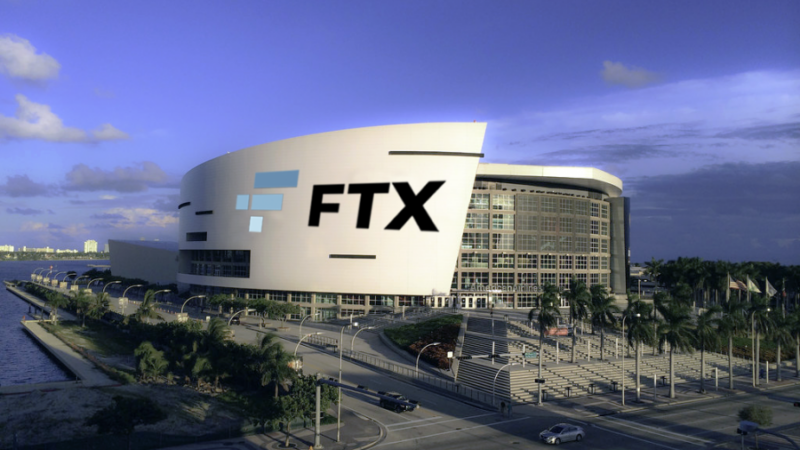Banks need to be cautious and make sure they're following protocols when offering services to crypto firms and clients dealing in digital assets, regulators say
Top U.S. bank regulators have sent an unequivocal message to those financial services firms wishing to engage with digital asset clients — if you want to take on such customers, be prepared to manage the risks. A joint statement from the Federal Reserve, Office of the Comptroller of the Currency, and the Federal Deposit Insurance Corporation (FDIC) did not prescribe any new regulations, however, experts say that regulators want to dissuade banks from entering in crypto asset relationships.
The regulators’ joint statement follows prior warnings over the risks posed by the crypto asset world. The latest announcement reminded banks that even a traditional banking activity — such as the acceptance of cash deposits — from crypto asset firms may carry unique or heightened risks that require additional risk-management practices.
The two-page joint statement issued Feb. 23 clearly stated “[c]ertain sources of funding from crypto-asset-related entities may pose heightened liquidity risks to banking organizations due to the unpredictability of the scale and timing of deposit inflows and outflows.” The regulators noted that such deposits can be susceptible to large and rapid inflows and outflows, when end-customers react to crypto-asset-sector-related market events, media reports, and uncertainty.
Reports recently emerged that Binance’s stablecoin, Binance USD, has seen around $6 billion of outflows following a U.S. regulatory crackdown on the company that issues the token. The New York Department of Financial Services last month halted new issuance of the stablecoin, known as BUSD, citing “several unresolved issues” relating to Binance’s relationship with Paxos, the company responsible for minting the dollar-pegged token.
False claims over FDIC insurance
A major concern of regulators is claims made by crypto firms that their deposits are insured by the Federal Deposit Insurance Corporation (FDIC). Last year, the FDIC and the Federal Reserve demanded that the crypto brokerage firm Voyager Digital cease and desist from making false and misleading statements regarding its FDIC deposit insurance status and take immediate action to correct any such prior statements.
According to the agencies, Voyager and certain officers and employees made various statements online, including on its website, mobile app, and social media accounts, stating that Voyager itself is FDIC-insured and that those who invested with the Voyager cryptocurrency platform would receive FDIC insurance coverage for all funds provided to the company. The FDIC said Voyager maintained a deposit account for the benefit of its customers in a bank that is supervised by the Fed. “Voyager is not itself insured by the FDIC, though, and so customers who invested through its cryptocurrency platform would not receive insurance coverage in the event of Voyager’s failure,” the regulators said.
The FDIC then subsequently warned FTX, at the time the largest cryptocurrency exchange, and several other crypto firms, to stop “misleading” consumers about the insurance status of their funds. FTX collapsed last November following a liquidity crisis. The company and its former head, Sam Bankman-Fried, are facing criminal fraud charges in U.S. courts. And U.S. prosecutors recently widened their criminal case against Bankman-Fried, adding new charges and detailing a “series of systems and schemes” through which they allege the FTX founder siphoned off billions of dollars from customer deposits.
Banks face greater scrutiny & compliance burden
Legal experts said the latest missive from bank regulators suggests an attempt to limit the spread of cryptocurrency assets throughout the banking system. While not officially discouraging banks from establishing such relationships, regulators let it be known that any desire by banks to bring on such clients would be subject to close examination.
The statement takes the view that the federal banking agencies are not creating any new risk management principles or officially discouraging banks from providing banking services to crypto asset firms, said the law firm Davis Polk in a memo to clients. “Nonetheless, the release is the latest in a series of recent statements and actions by the federal banking agencies that are designed to limit banks’ interaction with crypto asset firms or other crypto asset-related activities,” the memo said.
Consulting firm PwC noted that the regulators’ joint statement makes clear that if banks wish to transact with crypto asset entities, regulators expect them to leverage their existing liquidity management framework while incorporating specific risks and attributes of digital assets. To apply their internal liquidity frameworks to such clients, however, banks will need sufficient expertise to adequately monitor the market and adjust their programs accordingly. “The recommendation to perform due diligence and ongoing monitoring of these customers is new, and developing a program to do so will be time-consuming and challenging for banks,” PwC stated.
Amy Matsuo, national leader for regulatory insights at KPMG, says that a “growing regulatory mantra is unfolding of ‘don’t inappropriately use, lose, or abuse’ investor and consumer assets.” This means that the burden is on the company that “directly or indirectly engages in such assets to actively demonstrate sound risk management, consumer and investor protection, safety and soundness, and reporting practices,” Matsuo adds.
Brokered deposits — a new area of focus
Legal experts also point to another part of the bank regulators’ statement that is new and perhaps requires additional compliance focus — brokered deposits. In their statement, the regulators highlight that banking organizations are required to comply with regulations that include brokered deposits, which is a deposit made to a bank with the assistance of a third-party deposit broker. These deposit brokers facilitate the placement of other people’s deposits with insured financial institutions, such as banks.
Under the Federal Deposit Insurance Act, however, only well-capitalized banks can accept brokered deposits without a waiver from the FDIC. Brokered deposits also attract higher deposit insurance fees.
Davis Polk notes that the attention on brokered deposits might indicate that a “new front is emerging” regarding crypto asset firms. “The joint statement is a reminder that banks will need to carefully document their conclusions about whether deposits from crypto asset firms are brokered and implement compliance procedures to treat them as such, when necessary,” Davis Polk noted.






